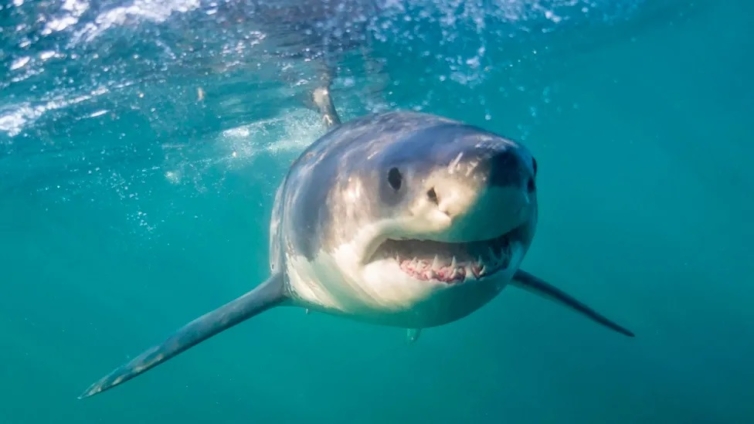How to live with sharks is a life and death issue in South Africa's coastal city of Cape Town.
Great white sharks have been seen off the beaches here this month for the first time in more than four years.
The predators were once frequent visitors, responsible for fatal attacks on swimmers.
Some places, like coastal areas in South Africa's KwaZulu-Natal province, seek to tackle the danger by using nets and baited hooks to kill sharks, but this also harms other sea life, such as dolphins and turtles.
The International Union for Conservation of Nature has said it strongly encourages non-lethal approaches to addressing the risk from sharks.
In Cape Town the approach aims to protect both sharks and people by keeping them apart.
For more than 15 years, a professional team of shark spotters has operated in the area.
The overall idea is to "prevent negative interactions between people and sharks and find a balance between recreational water user safety and white shark conservation", says Sarah Waries, CEO of Shark Spotters.
Conservationists actually welcome the return of the great whites as their disappearance has been a source of worry for the ecology of the waters off Cape Town.
The spotters watch five beaches from the surrounding mountainsides, with those high above in radio contact with colleagues on the beaches.
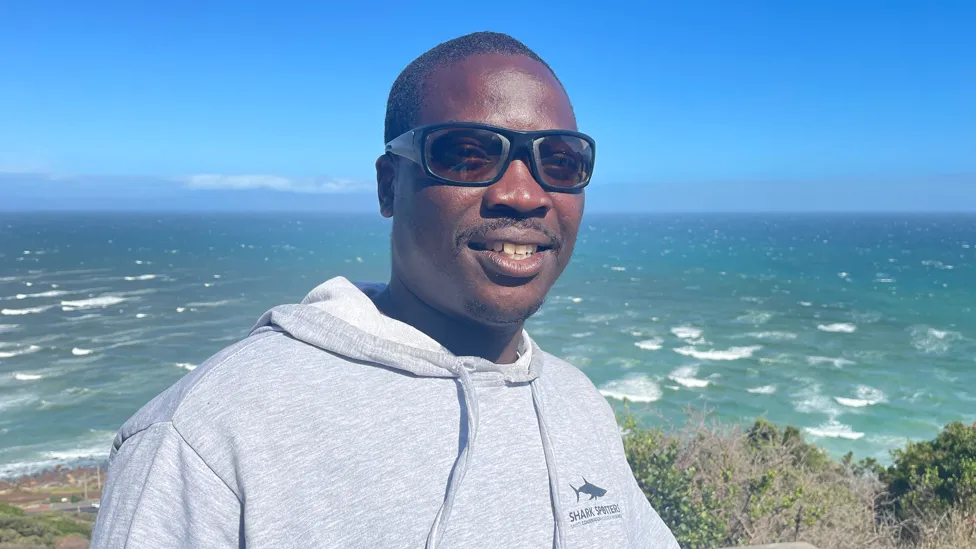
Alerts are issued and waters cleared if a potentially dangerous shark is seen. A flag system indicates the latest status, with a white flag warning people to leave the sea immediately.
Dennis Chikodze, watching with binoculars from a mountainside hut, was responsible for one of the great white sightings this month.
He wants people to learn more about what is safe and says some try to enter the water when a white flag is flying, which is "very dangerous".
Each morning, the team aims to create a safe bathing area off Fish Hoek beach with a 350m (1,148ft) "exclusion net". There have previously been fatal attacks in the bay and the team say sharks can come in "waist-deep".
The net is placed down to the seabed and across the bay, and then lifted each evening - to avoid injuring or killing sea life.
The shark spotters say it is a unique system and designed to have a minimal environmental impact, making it different from traditional fixed shark barriers.
When I joined the team putting the net down early one morning bathers immediately came into the water, bobbing up and down in the water next to the barrier.
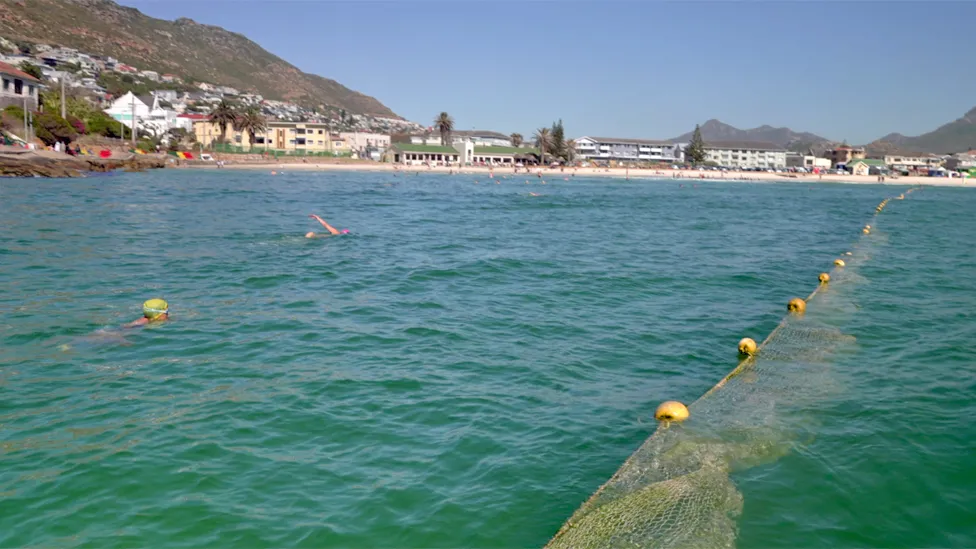
Ms Waries says shark bites are "incredibly traumatic events" which affect whole communities, with significant social, economic and environmental impacts following contact with sharks, particularly those that end in fatalities.
Up the Western Cape coastline at Plettenberg Bay, the shark spotters were called in after two fatal attacks last year. They now watch five beaches there and have made more than 70 great white shark sightings in a year.
One of those killed in Plettenberg Bay by a great white shark was Kimon "Kiki" Bisogno.
She was a community worker who had spent years helping the homeless and ran a restaurant in Cape Town with her partner Diego Milesi.
At Ferdinando's Pizza, tributes from the community to Kiki still fill the windows and a large mural of her now adorns the side of the building.
Mr Milesi says he was so lucky to find love with Kiki, who was "bright in personality, big smile on her face, playful and kind, and with a big, big heart".
She was the second person to die in Plettenberg Bay last year, but it was only after her death that the shark spotters were put in place.
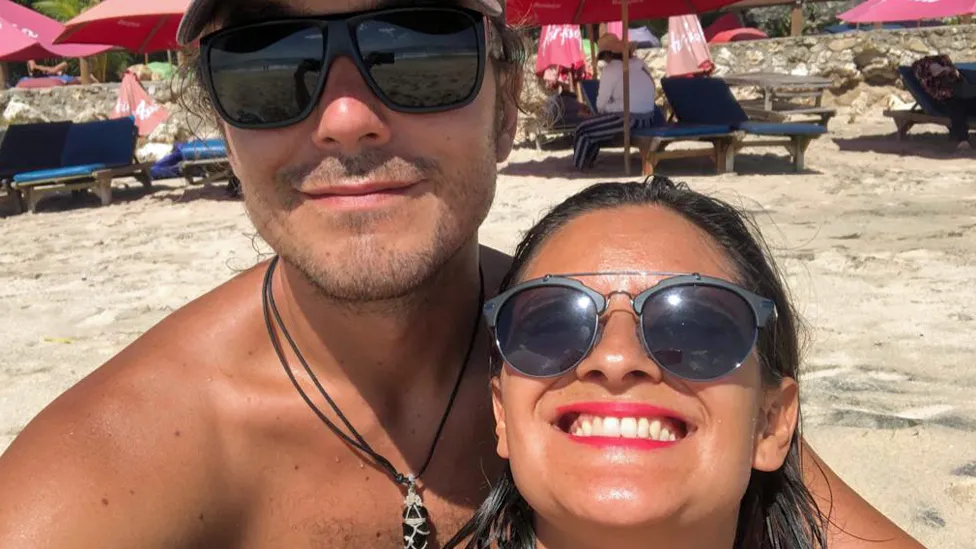
Mr Milesi wants people to learn from what happened, and to encourage awareness and understanding of the risk in the waters.
If someone had put up a "beware of sharks" sign after the first accident then maybe she would not have gone swimming, he says.
Such a small action could have made all the difference and put people on guard.
At a nearby factory in Cape Town, another non-lethal approach to dealing with sharks is being built.
Local marine biologist Dr Sara Andreotti is overseeing the creation of a different kind of shark barrier.
Designed to mimic an underwater forest of kelp, which sharks visually dislike, its long arms contain magnets intended to repel them.
"Sharks have a very sensitive organ around their eye and around their nose that allows them to feel electric and magnetic fields in the water," says Dr Andreotti.
Presenting them with a very large magnet overwhelms that sense, so it is very uncomfortable for them to come closer than one metre to such magnets, she adds.
Her shark-safe barrier solely excludes sharks, Dr Andreotti says, meaning it does not impact other sea life, which - like people - can simply swim through it.
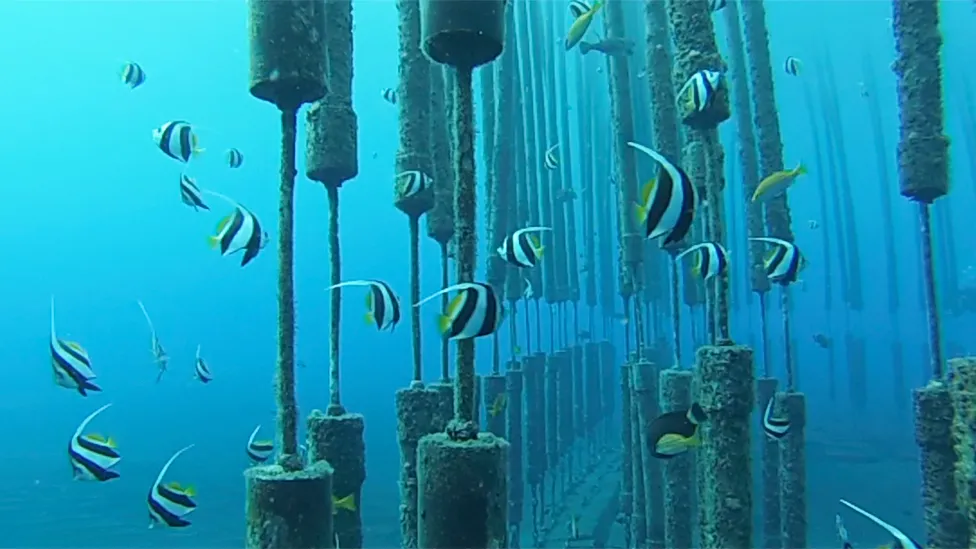
She says this concept is a "change" for people and is a hard sell.
After years of testing, the barrier has recently been fitted on a private island in the Bahamas and she hopes to see it fitted in South Africa.
She describes sharks as crucial "top predators" whose removal through culls and deliberate targeting creates a "domino effect to the ecosystem that is going to be detrimental".
For the marine biologist, this is essential for bathers to keep in mind.
"Overall sharks do a really good job in keeping everything in balance."
Latest Stories
-
NSS management assists Papao fire victims
23 mins -
EXPLAINER: Will dumsor end soon?
54 mins -
IMANI Africa takes on EC, accuses it of lying and publishing half truths
2 hours -
Manasseh Azure calls for investigation and prosecution of those responsible for GRA/SML contract
2 hours -
Kwesi Atuahene: Ghana’s health capital depends on HealthTech – Africa Center for Digital Transformation
2 hours -
13 signs your wife is planning on leaving you and you have no idea
2 hours -
IMANI Africa: Ghana’s EC’s dangerous and pathological conduct
3 hours -
If I speak there will be fire – Salah on Klopp row
4 hours -
Grieving after divorce is normal, but this particular kind of grief isn’t
4 hours -
10 beautifully unexpected ways husbands proposed to their wives
4 hours -
Reality zone with Vicky Wireko: Painting Ghana purple: Be aware, May is month of mental health awareness
4 hours -
Prof Opoku-Agyemang’s integrity is admirable – Inusah Fuseini
4 hours -
Your reign has been a beacon of wisdom – Alan Kyerematen tells Asantehene
4 hours -
Akufo-Addo’s driver wins La Dadekotopon NPP primary
4 hours -
Education Minister must channel resources to rebrand basic public schools into tackling critical needs – Minority
4 hours

